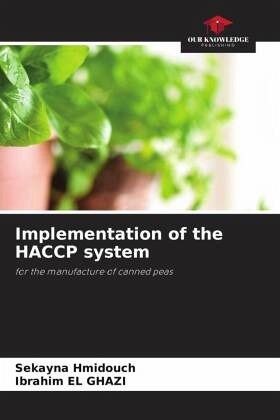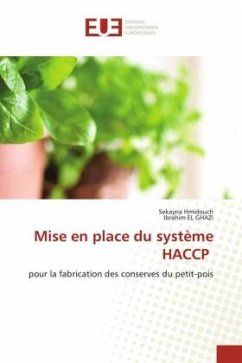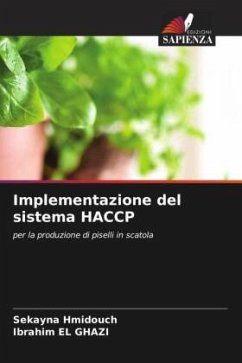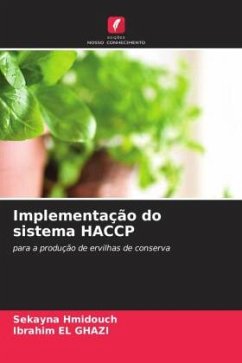
Implementation of the HACCP system
for the manufacture of canned peas
Versandkostenfrei!
Versandfertig in 6-10 Tagen
29,99 €
inkl. MwSt.

PAYBACK Punkte
15 °P sammeln!
One of the most important tasks in a canning factory is to achieve a stable quality of the finished product. However, the constant increase in the rate of waste, the rise in the number of pathogens and the existence of foreign bodies are signs of a lack of managerial support. Thus, control measures that act in a truly preventive manner should be put in place to ensure the sanitary safety and achieve a permanent quality of canned peas. The work aims specifically to encourage management to make a commitment to HACCP, contribute to the awareness and training of staff to respect good hygiene pract...
One of the most important tasks in a canning factory is to achieve a stable quality of the finished product. However, the constant increase in the rate of waste, the rise in the number of pathogens and the existence of foreign bodies are signs of a lack of managerial support. Thus, control measures that act in a truly preventive manner should be put in place to ensure the sanitary safety and achieve a permanent quality of canned peas. The work aims specifically to encourage management to make a commitment to HACCP, contribute to the awareness and training of staff to respect good hygiene practices (GHP) and manufacturing as well as the implementation of the HACCP system at the pea production line.












